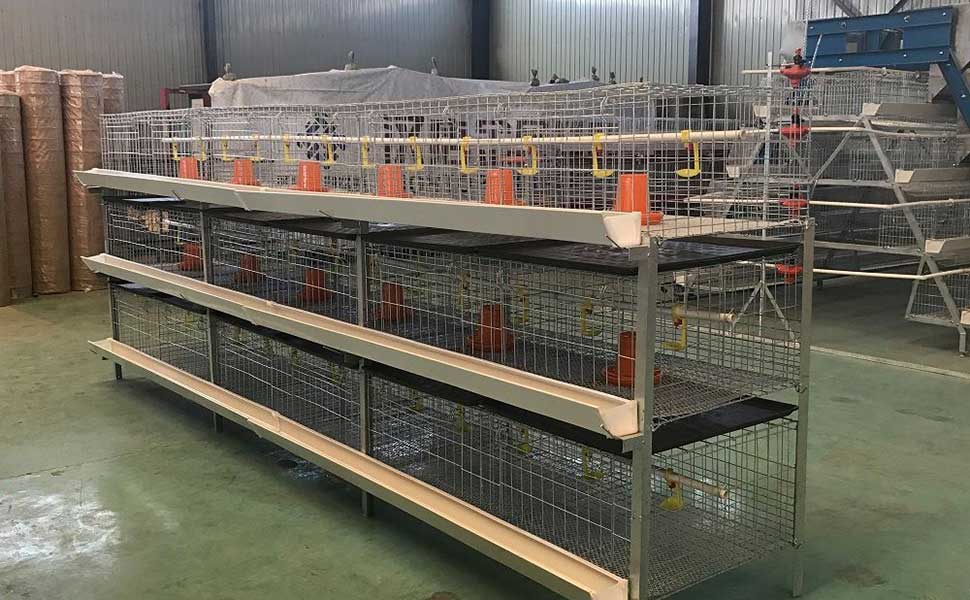Physiological characteristics of chickens in cages
Feb 13, 2020
In order to better raise chickens, chicken flocks can grow up healthily, and thus our breeding income can increase. Let's talk briefly about the physiological characteristics of chickens.
1. Egg and
broiler chickens are timid and are easily frightened, so farmers should pay attention to the quietness of the chicken house. Sudden noises outside the chicken house and cats, rats and snakes in the chicken house can cause chicken flocks. The stress response affects the performance of the flock.

2. For chicks, they are more afraid of cold. Adult chickens are more afraid of heat. This is because the chicks that have just come out of the shell have weak heat insulation ability, and their normal body temperature is 3 degrees lower than that of adult chickens, so farmers must be. We must do a good job of thermal insulation for brooding. After growing into a chicken, the feathers are abundant, and the chicken body does not have sweat glands, so it is necessary to do a good job of preventing heatstroke and cooling.
3. Farmers must have heard that light can affect the growth and performance of laying hens, because the flocks are sensitive to light. When there is no light in the hen house, the chickens will not eat, and if the chickens are not supplemented with light, it will also affect the productivity. Therefore, the farmers should plan to supplement the chickens with light. Too strong.
4. Abnormal digestive function of chickens: Chickens feed by leaning on their heads. Therefore, feed and water tanks must be properly set up to prevent overflow of feed water. Digestive food is crushed by the strong contraction of the muscle and stomach, so it is necessary to add sand regularly.
Pre:Feed for laying hens in cages
Next:The role of chicken cages in the breeding process

